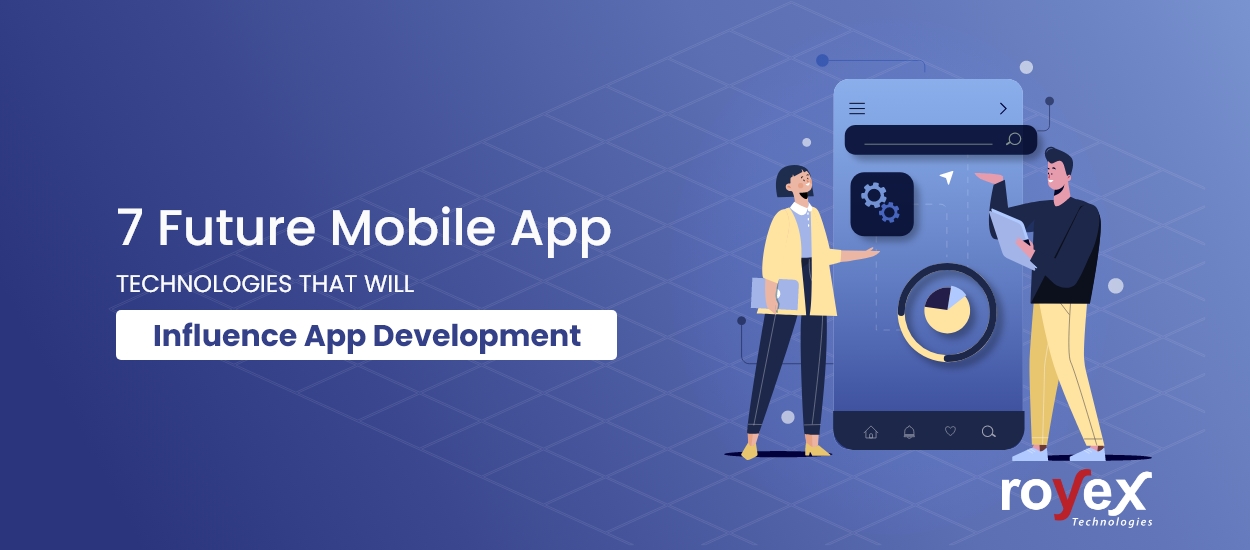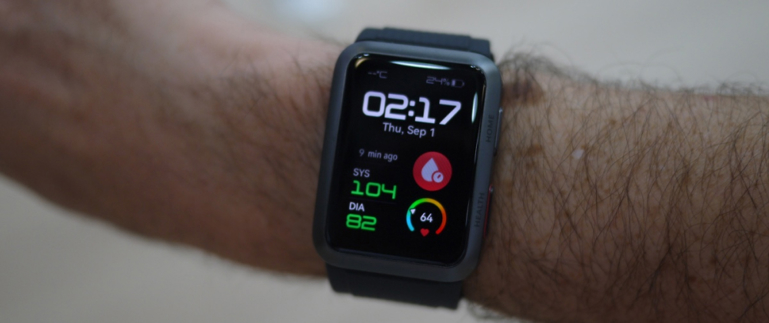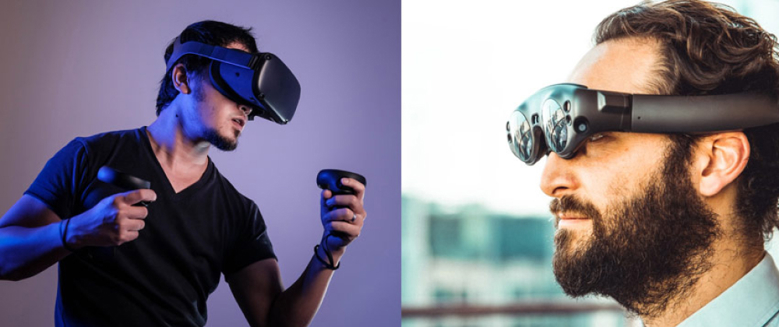
7 Future Mobile App Technologies That Will Influence App Development
One of the most prominent factors in modern technology is mobile. In previously unheard-of ways, mobile gadgets and applications control our reality and information consumption. However, cellphones' hardware, software, and technology have all advanced significantly.
A few trends in the mobile app development market cannot be ignored. The demand for high-quality apps offering this capability grows as more modern customers use their smartphones to pay their bills, connect with coworkers through various messenger apps, and make new friends. Because of the numerous recent scandals involving GDPR violations, security breaches, and other negative tendencies in this industry, people want their operations to be safe, secure, and private.
The global market for mobile applications is growing faster than ever. The number of smartphone users is growing, helping to drive up the revenue of mobile apps. This expansion presents numerous opportunities for mobile app developers. By using some of the most recent technology, app developers may enhance user experience.
It's time to make future plans while considering the rise in application development. It's time for you to think about various possibilities and development trends that would considerably enhance the UI and UX of your current mobile app. These trends also enable you to create cutting-edge mobile applications. Some of these popular trends that companies and startups should consider when developing mobile apps are listed below.
5G Support

More and more nations are using 5G technologies. It is already clear that the new technology will have largely replaced its more established competitors at this rate. The causes for this include remote employment, the rise in popularity of streaming services, and the rising demand for broadband access caused by COVID-19.
By the end of 2030, Statista projects that the global market for 5G technology will have grown to an amazing $620.72 billion. With its significant increase in connectivity, 5G technology might usher in the fourth Industrial Revolution.
With its extraordinary speed and connectivity, 5G technology advances augmented reality, virtual reality, and the Internet of Things (IoT). It will significantly impact several industries, including health, education, transportation, etc. Additionally, the more precise geofencing and geo-targeting needed for mobile apps would be made possible by 5G's higher radiofrequency and shorter wavelength.
This means that most users will anticipate native support for 5G and the benefits it can provide for app developers.
Some of them consist of:
- Better aesthetics because of more traffic.
- Comprehensive personalization based on AI and machine learning techniques.
- Improved horizontal connectivity
- A progressive move toward data processing in the cloud.
For developers, the final component might seem extremely profitable. NVIDIA's GeForce NOW service, which is gaining popularity, effectively enables its subscribers to play the newest PC games without owning a top-tier gaming PC. The user experience is supplied through the low-latency streaming of the generated video using hardware rented from the firm datacenters.
Using resource-intensive programs without fully installing them on smartphones or leveraging some of the accompanying workloads to corporate servers will be made possible by applying similar ideas to mobile apps. For developers ready to accept and support these developments, this creates a variety of new options.
Mobile commerce and Cybersecurity

Mobile wallets are gradually replacing traditional debit and credit cards as the preferred method for in-app transactions. According to recent Apple announcements, point-of-sale products will be available in 2022. Any user can use this to turn their iPhone or iPad into a payment terminal for their company. These patterns in mobile app development show unequivocally that in the 2020s, mobile transactions will replace certain existing solutions in this area and establish themselves as the new standard.
This opens up various opportunities for app developers, such as creating peer-to-peer payments made within their services or mobile wallets tailored to particular apps.
People may want to store a set amount of money on a specific account within a subscription-based product rather than give your program complete access to their primary debit or credit card. As a result, the majority of developers will have to have some level of financial expertise. By doing this, they can give their users the convenience they want while ensuring their safety.
Cybersecurity: Given this, user experience and consumer data security are equally crucial. Because nobody wants to lose their cash or private information unintentionally.
To ensure the security and contentment of their customers, every app developer must concentrate on the following areas:
- Discuss openly the techniques and measures you use to safeguard your clients.
- Integrate biometric and two-factor authentication wherever it is practical for all in-app purchases.
- Conduct internal audits regularly to verify adherence to the GDPR and other relevant laws.
- Recognize the kind of data you actually require and refrain from gathering extraneous customer data. Remember that you are responsible for handling, processing, and confidentiality. This puts you at a larger risk of any unintentional security breaches.
Wearables

Wearables have completely changed the world. People are now adopting wearable devices to stay connected to the outside world, like headphones, smartwatches, etc. Because Wearables allow users to get messages and notifications on their timepieces, they offer a high level of convenience. Additionally, the popularity of fitness tracking devices has increased significantly as people's awareness of the need to live a healthy lifestyle has grown.
The demand for smartphone apps required to operate wearables would rise due to these gadgets. Wearable technology has a significant impact on the sports and healthcare sectors. According to need, numerous additional businesses will also use wearable technology. Shortly, wearable technology will be incorporated into many objects around us.
As of 2022, there is still debate regarding the legal status of cryptocurrencies in several jurisdictions, with some even going so far as to outright ban them because of the dangers of tax evasion, the expansion of the shadow economy, and money-laundering operations. By leveraging security from a local device to the level of a shared database, blockchain elements, according to all experts, offer unprecedented data safety.
Securing classified data has grown crucial as more individuals buy and sell using their smartphones. To keep your data safe and exchange it effortlessly across various supply chains, blockchain offers a solid and secure option. A survey from markets & markets predicted that the blockchain market would reach $67.4 billion by 2026.
Therefore, blockchain technology can be a terrific option if you seek a secure payment gateway for your mobile app.
This allows app developers to decentralize various processes and ensure that hackers cannot access confidential information by taking over a single network node. The intruders are successfully prevented from altering crucial data or stealing user traffic because timestamps are tied to every transaction, and logs of every transaction are saved on several devices. Here are a few clear benefits of preparing your app for blockchain technology by 2022.
Benefits:
- Decentralized data storage and transfer methods eliminate the need for centralized servers susceptible to attack.
- Only authorized users can manipulate data; all such operations are completely transparent and simple to track.
- Blockchain-based solutions use encryption and cryptography at much higher levels than the available mobile apps.
- Blockchain components may be readily incorporated into cross-platform apps using modern development tools like React Native, resulting in a seamless and safe user experience.
AR and VR

Mobile app development is increasingly leaning on AR/VR technologies to provide a better user experience. Statista's market research shows that the global AR/VR industry is expected to reach $160 billion by 2023.
The widespread use of AR/VR technologies would make a more individualized user interface. By employing AR/VR, customers may, for instance, visually visualize how a piece of furniture will look in their living room or even determine how a new outfit would look on them.
Although AR and VR technology has advanced rather slowly over the past ten years, Facebook's initiatives in the 2010s may quickly alter the current state of affairs in this field.
It recently changed its name to Meta to provide an immersive experience integrating both augmented and virtual reality technology, purchasing the Oculus company and creating some of the most affordable and well-liked VR headsets on the market.
Although this vision may seem to be some time in the future, there are many examples of more current uses for both ideas.
Examples: You may already use augmented reality (AR) to examine how some furniture manufacturers, like IKEA, can fit into your actual rooms.
Using the cameras on your smartphone lets, you view detailed descriptions of the products in front of you in many museums and shopping establishments.
Leading organizations in the sector, including Lloyds Banking Group, are gradually integrating VR into their hiring, skill-training, and onboarding processes.
As more entertainment content is produced in a 360-degree format, viewers can visit other locations and events virtually.
Given the previously mentioned 5G development, augmented and virtual reality concepts can be integrated widely because they provide special benefits for entertainment and conventional shopping. Therefore, it could be a good idea for app developers to start investigating and experimenting with these technologies right away.
IoT and bots

The development of chatbots, often known as bots, is revolutionizing the mobile app market. By 2025, the chatbot market will be worth $1.25 billion, according to projections. Business Insider says global consumer spending via chatbots will exceed $142 billion over the next two years. Here's how you can create a bot for your company.
The development of technologies like artificial intelligence, machine learning, and natural language processing is the cause of this enormous expansion. With the aid of technologies like sentiment analysis, voice and facial recognition, and semantic search in the years to come, interactions with chatbots will likewise seem more natural.
These bots will play a significant role in the rapidly expanding Internet of Things ecosystem. Examples of mobile apps with a voice as their user interface include Microsoft's Cortana and Apple's Siri. As a result, chatbots will undoubtedly serve as the hub for IoT devices and apps in the years to come.
Artificial Intelligence

One of the most significant mobile app technologies used by businesses to create sophisticated and extremely useful applications is artificial intelligence (AI). According to a McKinsey report, artificial intelligence attracted $39 billion in investment in 2016, which has continued to rise in the following years.
Mobile applications use AI to become intelligent, discover user behavior, and reach crucial conclusions. In other words, AI makes use of the information the app collects to understand user behavior and enhance the user experience. Here is how some of the most popular applications in use today are utilizing AI to help their business processes:
According to a Gartner survey, the number of firms using AI has increased by 270% in the last few years due to the technology's many benefits and applications. To make mobile apps intelligent and sound, it can be applied in a variety of ways, including:
Apps like Amazon, Netflix, and others employ AI to suggest things for customers to buy, entertainment to stream, and occasionally even potential life partners.
Reasoning: Depending on the traffic, apps like Google Maps and Uber occasionally modify their routes. AI is that. To provide users with the finest services possible, drivers can make quick judgments in real-time, thanks to artificial intelligence.
Security Enhancement: By seeing how frequently users interact with an app, AI can create rules that increase app security. For instance, if a malicious bot attempts to pose as one of your users to steal data or place unwanted transactions, the AI system will detect this unusual activity and immediately halt the transaction.
By integrating artificial intelligence into your app, you can provide users with a highly personalized experience, forecast their behavior, offer them more relevant advertising, increase engagement, boost revenue, and much more.
Royex Technologies is the best Mobile App Development Company in Dubai. Our expert mobile app developers in Dubai are committed to providing cost-effective mobile app development solutions that generate more revenue for our clients. Our skilled mobile app developers have expertise in iPhone and Android mobile technology and can develop apps that make smartphones work faster for their users. We can turn your imaginations into reality once you entrust us with the responsibility.






